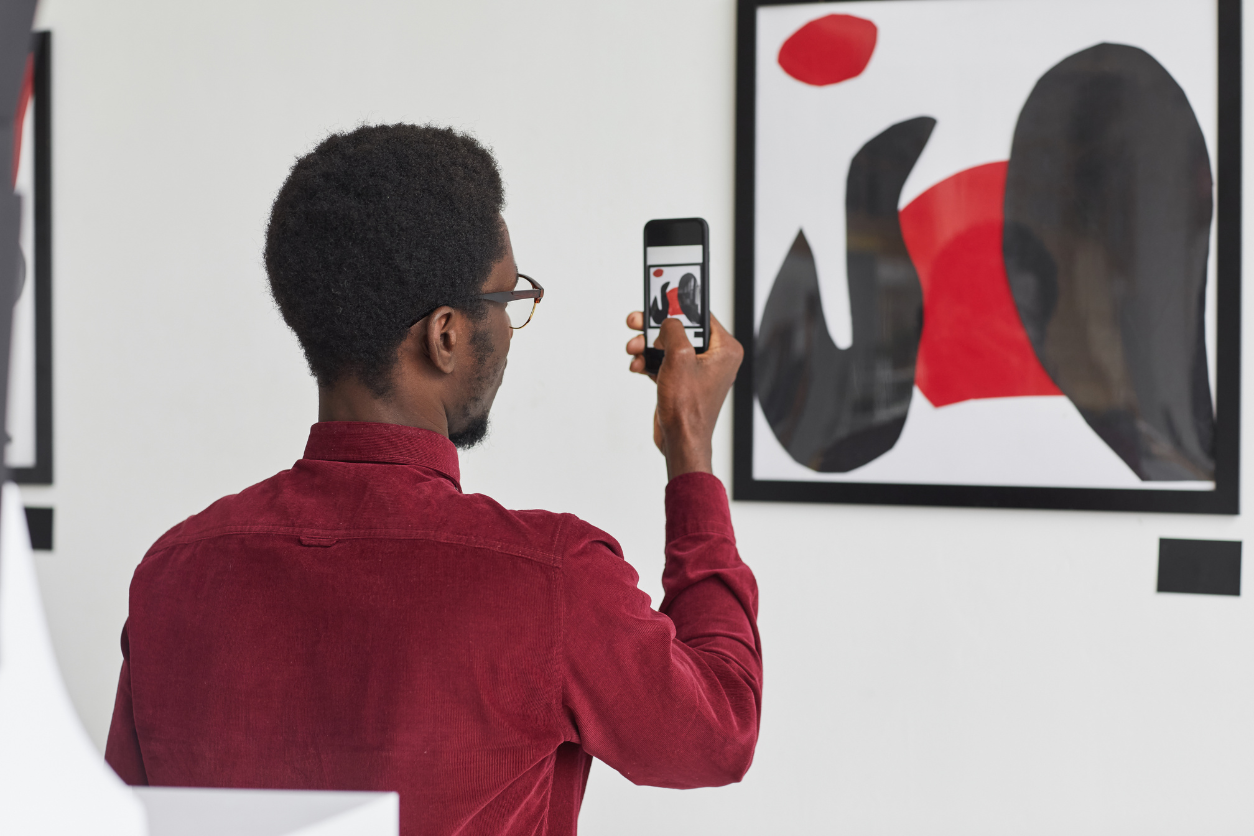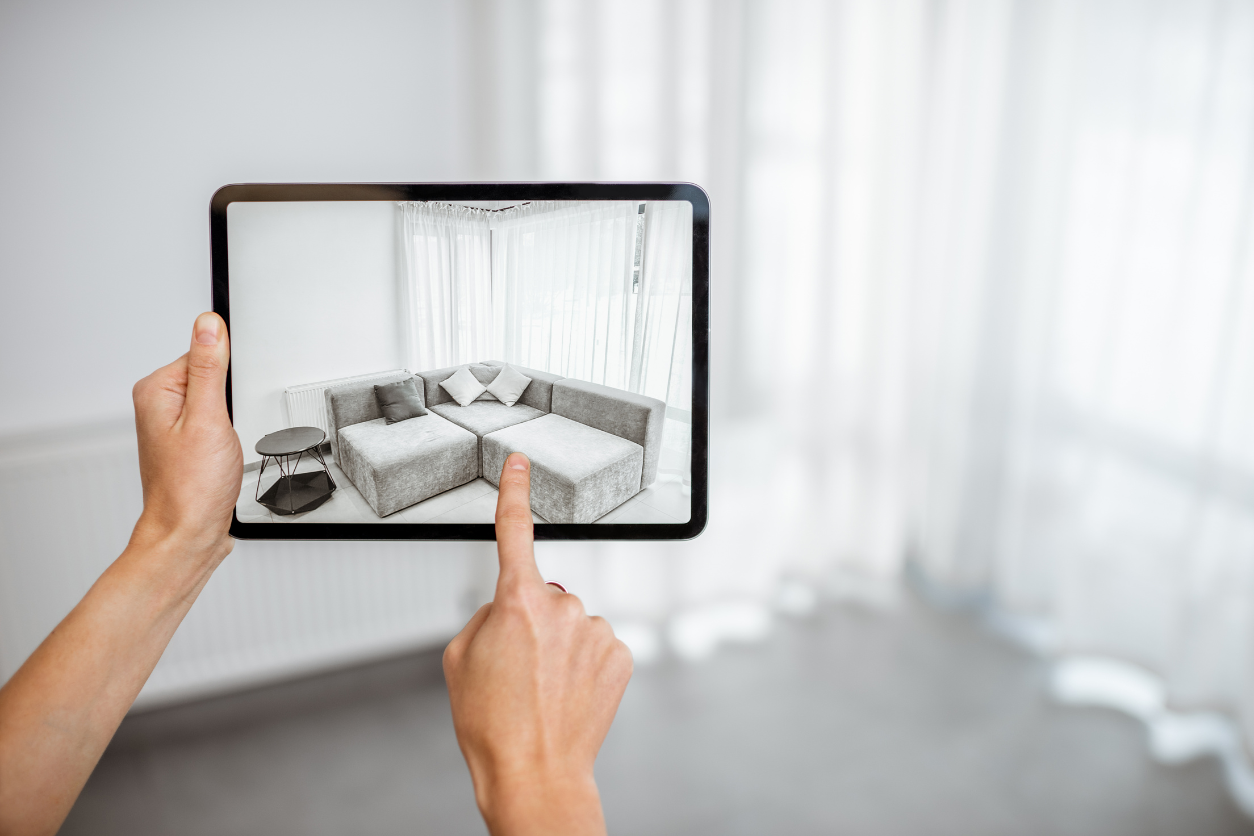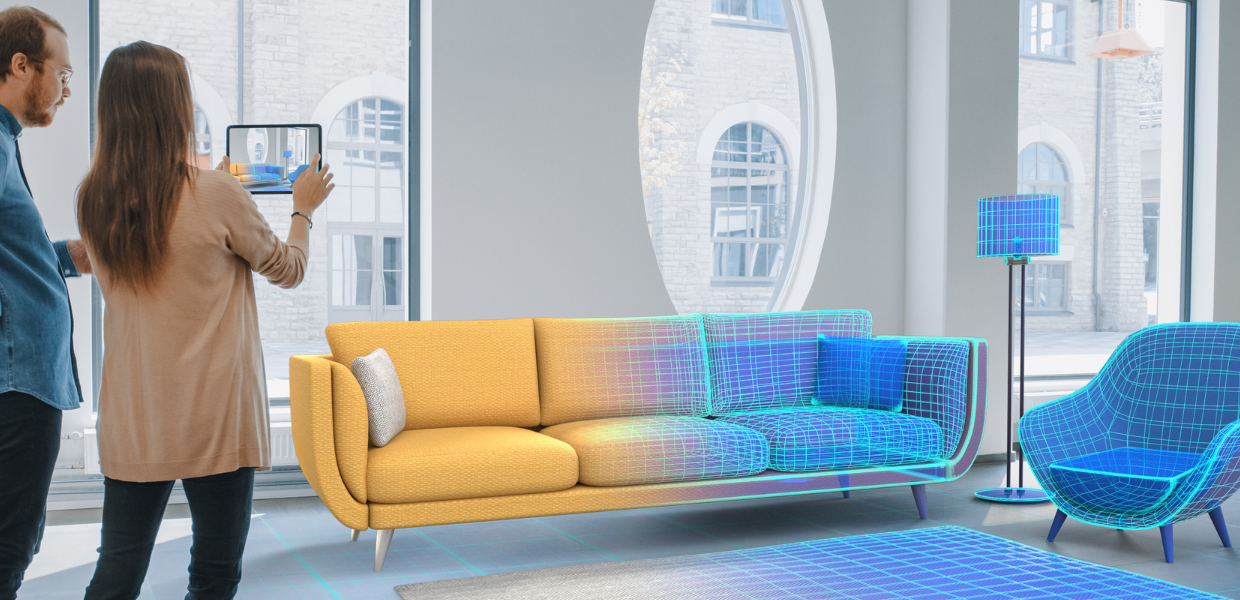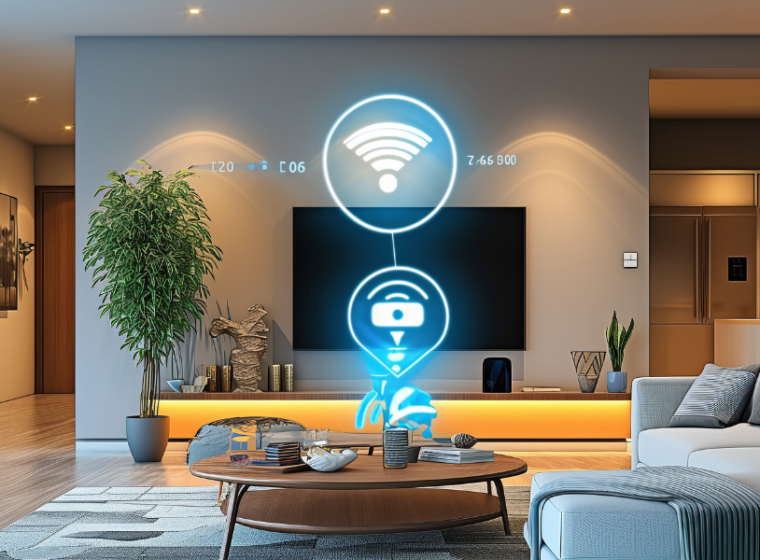Advancements in hotel technology are swiftly evolving, and at the forefront of this revolution is Augmented Reality (AR). With the ability to overlay computer-generated images onto our physical world, AR provides a massive upgrade in how hotels engage with their guests and streamline their day-to-day operations.
The use of AR (and its counterpart, Virtual Reality) is projected to expand significantly in the hospitality sector, with an anticipated growth rate of 34.2% from 2022 to 2028. We’re already witnessing groundbreaking AR models being used in many aspects of the hotel industry. As AR continues to evolve, it promises to become a key element in hospitality.
What is Augmented Reality in the Hotel Industry?
In simple terms, AR is a revolutionary technology that’s designed to enhance our perception of the physical world around us. It’s different from Virtual Reality (VR), which immerses users in a completely digital environment, as AR adds to our real-world surroundings in real-time.
AR functions by superimposing digital imagery onto a user’s view of the real world, typically through a camera-equipped device like a phone or tablet loaded with AR software. The software recognizes objects through computer vision technology, which analyzes the video stream and allows the virtual object to show up on the screen in the real environment together with the device’s camera input.
In essence, AR projects virtual content onto physical objects or surfaces, effectively blending the virtual and physical realms. For instance, the software can superimpose an interactive guest checking in at a hotel’s lobby, providing staff with various training modules based on real-world scenarios.
There are numerous ways AR can be put into action in the hospitality sector. For instance, it can give guests a full 360-degree view of their hotel or assist them with navigating through large hotel properties. Additionally, interactive room experiences can be offered to elevate overall guest satisfaction levels, such as:
- A virtual concierge that can provide personalized recommendations, directions, and information about the hotel and the surroundings.
- A digital art gallery that can display different artworks on the walls, according to the guest’s preferences and mood.
- A virtual fitness coach that can guide the guest through a customized workout routine, using the room’s furniture and equipment.
- A holographic entertainment system that can project realistic 3D images and sounds of various scenarios, such as a concert, a movie, or a game.
It can also be used for marketing purposes, such as allowing guests to capture and share digital experiences. For entertainment, hotels can get creative with creating AR-based experiences, like treasure hunts, tours, and exploring local amenities. At the same time, AR is helping streamline hotel operations with applications in employee training, room planning, and maintenance.
For hoteliers, understanding the current impact and future implications of augmented reality in the hotel industry is crucial. This technology is more than a value-added luxury — it’s a practical tool that improves guest engagement through AR-based entertainment, hotel tours, navigation, and art. The use of augmented reality in hotels is expected to grow rapidly, and many hotels are already adopting AR in creative ways.
Examples of Hotels Leveraging AR Technology
As AR technology matures, its role in hospitality becomes increasingly significant. From reinventing guest experiences with interactive and engaging content to improving operational efficiency through advanced training and maintenance tools, the impact of AR is wide-reaching.
There are many diverse ways AR is changing the dynamics between hotels, their guests, and their staff. Here are a few examples of how hotels are currently leveraging AR technology:
– Hôtel des Arts Saigon has implemented an AR-based app to enhance the guest experience. The app allows users to create the perfect itinerary by accessing top recommendations and deals.
– AccorHotels has implemented AR technology to offer interactive city guides to guests, providing information about local attractions, restaurants, and transportation options.
– Holiday Inn has used augmented reality in hotel rooms to allow guests to use their smartphones to see virtual depictions of celebrity athletes in the hotel.
These are just a handful of examples that illustrate augmented reality in the hotel industry as a powerful tool where the essence of service is rooted in providing genuine and emotionally impactful experiences. AR offers customers a more profound and immersive experience, elevating already impressive real-world encounters.
Elevating the Guest Experience with Augmented Reality in Hotels
By integrating AR into various aspects of the guest experience, hotels are not just providing a place to stay, but a novel, immersive way to engage with the environment, art, and local culture.
Enhanced AR Entertainment
Augmented reality in the hotel industry can redefine guest entertainment by introducing immersive and interactive elements into the guest experience. For example, augmented reality in hotel rooms can transform guest rooms into virtual gaming platforms or interactive storytelling spaces where digital elements blend seamlessly with the physical setting.
This modern approach to AR-infused entertainment not only keeps guests entertained in unique ways, it showcases the hotel’s commitment to cutting-edge technology and advancements in guest satisfaction.

Interactive AR Art Exhibits
With augmented reality, hotels can revolutionize art displays and guest interactions using AR. Static art pieces come alive with AR, offering guests a deeper understanding through interactive stories, detailed artist profiles, and behind-the-scenes insights.
This digital interaction with art not only enhances the aesthetic value of hotel spaces but also offers a culturally enriching experience while making art more accessible and engaging for all guests.
Augmented Reality Maps for Hotel Navigation
AR maps are a game-changer for guest navigation within sprawling hotel properties. These digital guides offer real-time, interactive navigation assistance, overlaying helpful information directly onto the guests’ view of the hotel.
From pinpointing room locations to highlighting amenities and event spaces, AR maps ensure guests can explore the hotel with confidence and ease, enhancing their overall experience and satisfaction.
Personalized AR Tours
AR tours represent the pinnacle of personalized guest experiences. These tours can be tailored to highlight the hotel’s history, architectural uniqueness, or local cultural hotspots, all through the lens of augmented reality.
Guests can embark on self-guided tours, enriched with historical anecdotes, architectural insights, and cultural tidbits, all delivered through their AR-enabled devices. This not only adds an educational layer to their stay but also deepens their connection with the hotel and its surroundings.
Utilizing Augmented Reality for Hotel Staff and Operations
AR is not just revolutionizing the guest experience in hotels. It’s also transforming how hotel staff work and interact with their environment. By incorporating AR into their operational procedures, hotels are streamlining complex processes, enhancing training efficiency, and improving the accuracy and speed of hotel maintenance and room planning.
AR-Driven Training for Hotel Staff
AR technology is reinventing staff training in hospitality. It allows for interactive and realistic training simulations, where employees can practice and hone their skills in a virtual environment that closely mirrors real-life scenarios.
This hands-on approach facilitates more effective learning, helping staff to quickly master complex tasks, from customer service protocols to emergency response procedures. AR training is particularly beneficial for visual and experiential learners, leading to a more competent and confident workforce.

Augmented Reality in Hotel Room Planning and Design
In the realm of room planning and design, AR is proving to be an invaluable tool to explore ideas in a new way. By using augmented reality, hotel staff can visualize room layouts, design elements, and furniture arrangements, in real-time, in the actual space.
This technology aids in making more informed decisions about space utilization, décor, and overall design, ensuring that each room meets the hotel’s aesthetic and functional standards. It also allows for rapid prototyping of design concepts, saving time and resources in the planning phase.
AR for Efficient Hotel Maintenance
AR technology is significantly improving the efficiency of hotel maintenance operations. Maintenance staff can use AR to access real-time information and visual guides when inspecting and repairing equipment, reducing the need for extensive training or technical manuals.
For instance, AR can overlay digital information onto physical machinery, showing step-by-step instructions or highlighting areas needing attention. This not only speeds up the maintenance process but also enhances the accuracy and quality of repairs, leading to less downtime and improved guest satisfaction.
Embrace Augmented Reality in the Hotel Industry with Ample Connectivity
Taking a page out of the retail sector, research reveals that 71% of consumers would engage more frequently with their preferred brands if they offered AR experiences. The survey further uncovers that 40% of customers are willing to pay a premium for products they can personalize using AR.
Hospitality businesses are responding to the call to action by adding next-level experiences and features for guests, all while streamlining aspects of employee operations. However, the efficacy and smooth operation of these AR solutions hinge on one critical factor: robust and reliable Internet connectivity.
This is where technology vendors like Blueprint RF play a pivotal role. As a leading provider of cutting-edge managed WiFi solutions, Blueprint RF is uniquely positioned to empower hotels with the necessary infrastructure to support advanced AR applications.
By ensuring uninterrupted, high-speed internet access, Blueprint RF enables hotels to fully leverage the power of AR, effectively enhancing the overall quality of their services and operations. Learn more about how to empower hotel connectivity to support such advancements in AR and contact Blueprint RF today.











